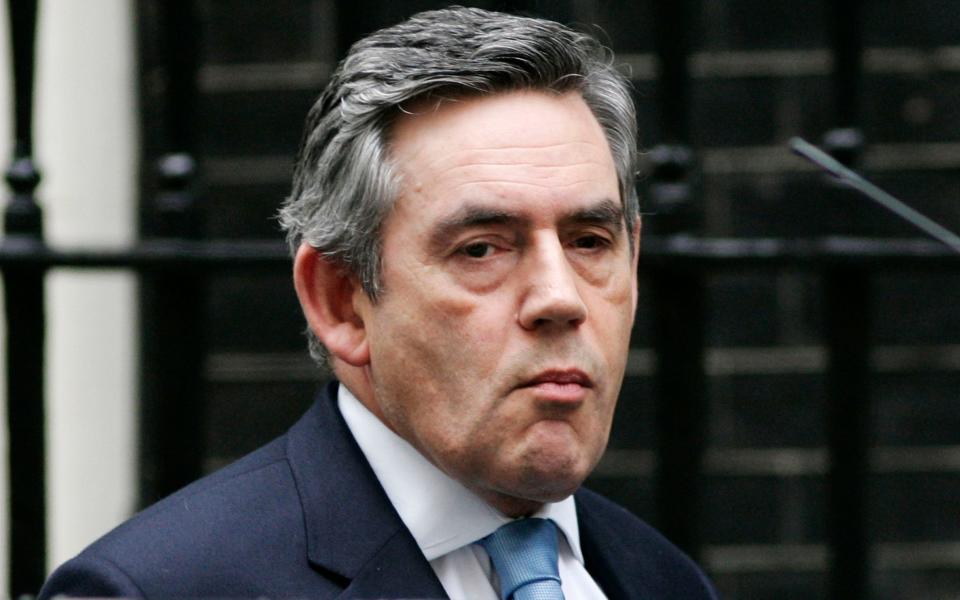Gordon Brown-backed stealth tax could push up mortgage payments by £170

Gordon Brown’s proposal to launch a stealth tax raid on banks would add hundreds of pounds to the cost of the average mortgage, analysis suggests.
Mr Brown, the former Labour leader, has led calls for the next government to overhaul the way the Bank of England pays interest to commercial lenders in a move that could save the taxpayer billions.
The former prime minister has proposed stopping interest payments on a proportion of reserves held by commercial banks at the Bank of England, saving the taxpayer as much as £3.3bn per year. The policy amounts to a stealth tax on banks.
In a report published last month, Mr Brown said: “Redirecting what, in a changing monetary environment, amounts to an unplanned subsidy to banks towards investment in the infrastructure that can support social partnerships to tackle poverty could make a huge difference.”
The former Labour leader’s advocacy has led to mounting speculation that the policy could be adopted by Labour, though shadow chancellor Rachel Reeves has insisted the party has “no plans” to do so.
Analysts warned that the change would prompt high street banks to either cut their savings offers or raise mortgage rates in an effort to protect profits.
Mr Brown’s proposal could add around £170 per year to the cost of repaying an average mortgage, according to analysis of industry data from UK Finance. A banking source described this as a “mortgage tax”.
The idea of changing the way the Bank pays interest has risen up the political agenda given the increasing cost to the taxpayer.
Under a deal signed off by former chancellor George Osborne, the Government agreed to cover any losses the Bank bore from the money-printing undertaken during the financial crisis and Covid.
The emergency measures to support the economy saw the Bank create money that it swapped for bonds, handing banks more cash that they could earn interest on.
Rising interest rates have made this arrangement unprofitable and the Treasury is now sending the Bank tens of billions a year to cover its losses.
Gemma Tetlow, chief economist of the Institute for Government, said reducing the cost of this arrangement would be extremely useful for Ms Reeves if she becomes chancellor, because the Labour Party will be boxed in by promises on taxes, spending and borrowing.
“There are proposals on things like changing the interest paid on Bank of England reserves that would somewhat reduce measured public borrowing,” she says.
“There are things that are not raising headline taxes or cutting headline public spending that may be the way to slightly square this circle.”
Reform UK, headed by Nigel Farage, has gone even further than Mr Brown and argued that all interest paid on reserves should be scrapped to save the taxpayer up to £40bn.
Jack Meaning, a former Bank of England economist now at Barclays, has conducted analysts looking at a range of possible scenarios as to how the Bank’s interest payments could be overhauled.
Plausible options could save the Treasury between £1bn and £11bn per year, Mr Meaning said.
An £11bn hit to the banks could be recouped by raising interest rates charged on loans by as much as 0.56 percentage points.
This would cost the average borrower with a fixed rate mortgage just over £68 extra per month, or around £820 per year, industry data from UK Finance indicates.
Experts have also warned that the changes would also hurt banks’ share prices.
Gary Greenwood, banking analyst at Shore Capital, said: “Ultimately you want banks to be able to lend and grow to support the economy.
“If you keep cutting banks off at the knee so that they cannot earn an economic return, the natural conclusion for the CEOs of those banks is that, if they are not allowed to earn an economic return, they are going to come under a lot of pressure from shareholders to shrink their balance sheets and give money back to shareholders, which is going to have a detrimental effect on the economy.”
Ms Reeves has played down the prospect of reducing interest paid on reserves but has not categorically ruled it out.
She said last week: “We have got no plans to do that. The paying of interest on reserves is part of the transmission mechanism for monetary policy – it is one of the ways that higher interest rates filter through to the real economy, so I don’t think that would be without its dangers.”
Andrew Bailey, the Governor of the Bank of England, last month said that paying interest on reserves is “an essential anchor for the implementation of monetary policy”.

 Yahoo Finanzas
Yahoo Finanzas 